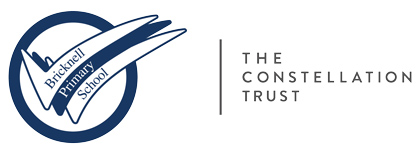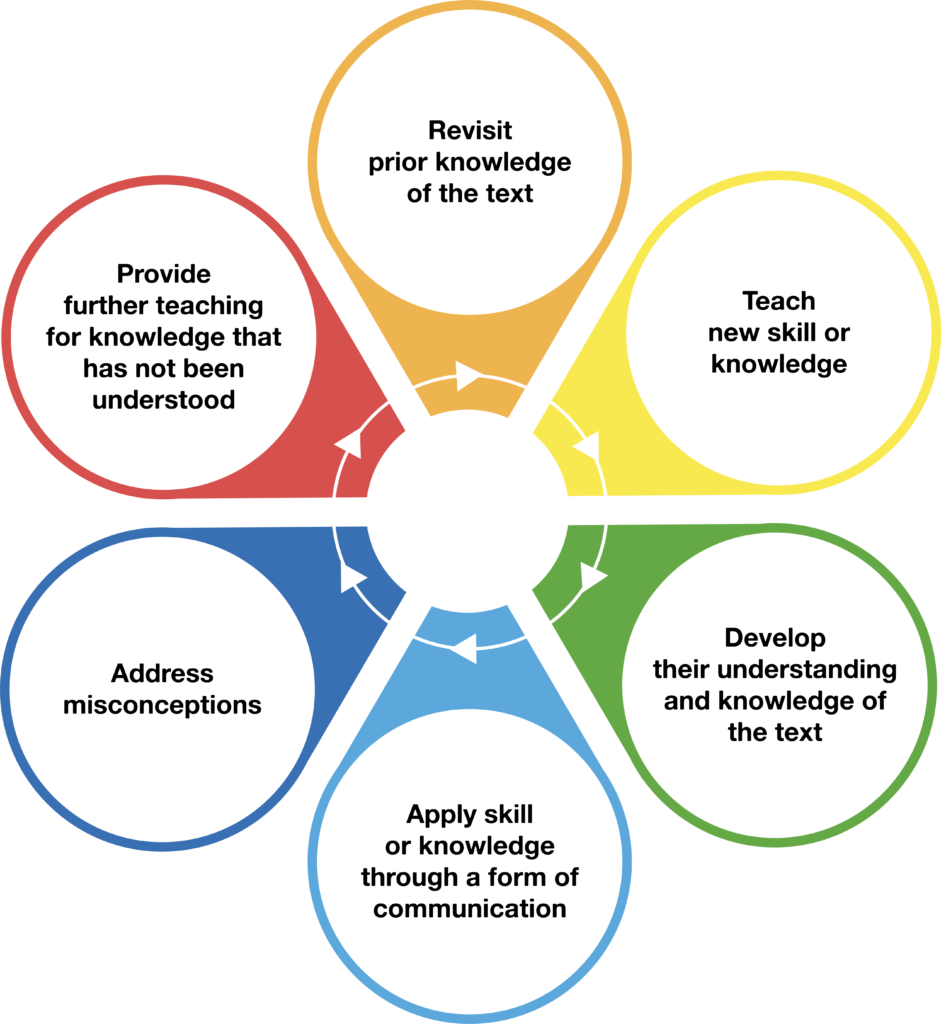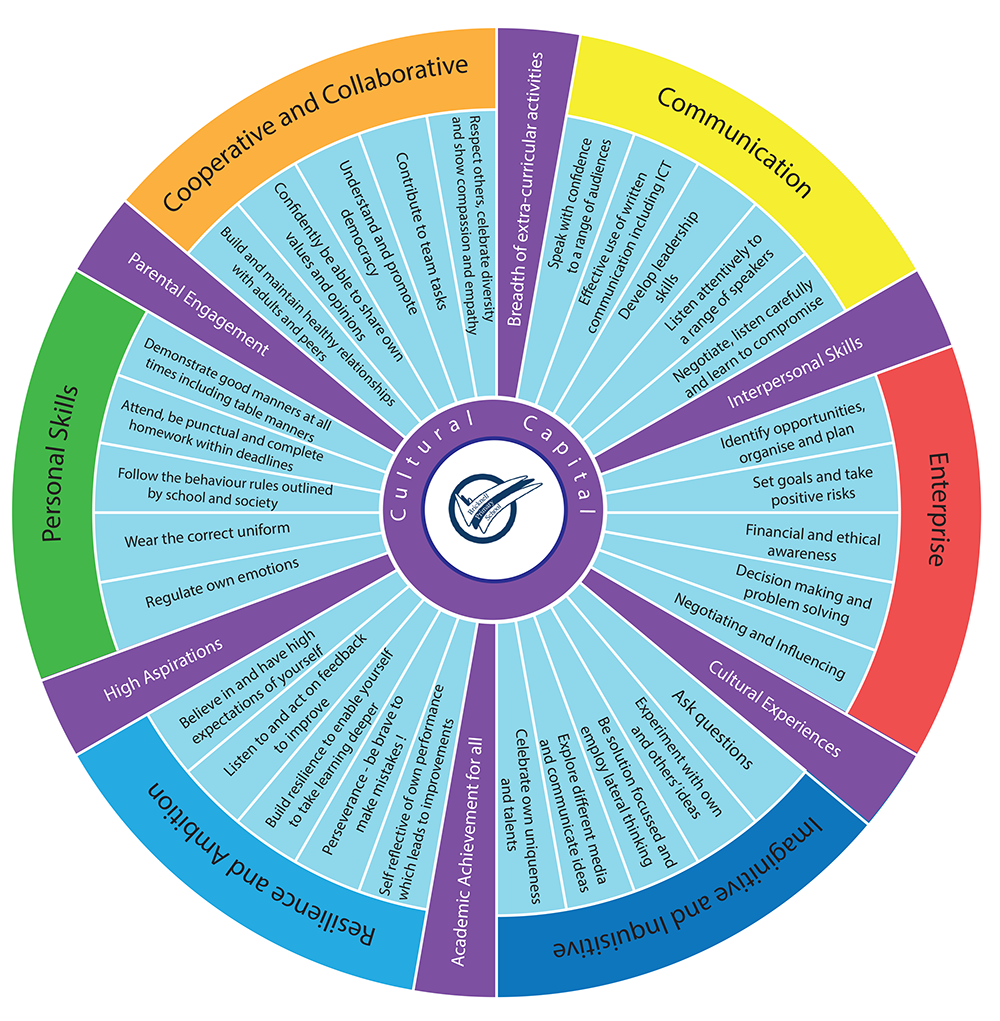

Aspiration
Knowledge
Achievement
Reading – curriculum information
Intent:
Reading has an important place in education and in society. A high-quality education in reading will direct pupils to speak and write fluently so that they can communicate their ideas and emotions to others; being a fluent reader also allows others to communicate with them. Through reading, pupils have a chance to develop culturally, emotionally, intellectually, socially and spiritually. Literature plays a key role in such development. By teaching reading, we intend to impart pupils with the knowledge, understanding, confidence, attitudes, values and skills they need in order to reach their potential as individuals and to become literate members of society.
At Bricknell Primary School, the teaching of the reading curriculum has been carefully considered to enable our pupils to become fluent, confident and accurate readers. At Bricknell, we follow the Read, Write, Inc phonics programme throughout EYFS, KS1 and until the children have the skills and fluency to access age-appropriate texts.
Our aim is to provide inclusive and aspirational environments and learning experiences where pupils thrive and build the cultural capital they need to make aspirational choices about their own futures, overcoming any barriers. In order to achieve this, our curriculum is underpinned by the principles highlighted in our Aspiration Curriculum.
Bricknell Aspiration Curriculum
Please click the image to enlarge
Within Reading, pupils will develop a deep understanding of key concepts and strands. These key concepts have been carefully considered and identified as the core knowledge and skills required to successfully achieve in all aspects of reading. The key concepts are revisited and developed as the pupils move through the school to ensure the knowledge and skills are firmly embedded within the long term memory. These key concepts are reinforced in all areas of the curriculum. The expectation is that, by the end of primary school, children will know and understand these key concepts and have the reading skills to enter KS3 confidently.
Reading is taught on a daily basis and supported through home reading. In daily reading sessions, children are taught different skills with an aim to develop a child who reads fluently, with understanding and for enjoyment.
Key Concepts
These are explored through different texts and text types appropriate to the age and ability of the child.
Word Reading: Children are taught to apply their developing phonic knowledge to read fluently and accurately.
Comprehension: Children are taught the skills to understand and question the texts which they are reading.
Strands.
Within guided reading sessions, children are taught a range of skills in order for them to understand texts.
Vocabulary: Children are exposed to increasingly adventurous vocabulary in order to widen their knowledge and understanding.
Inference: Children are taught to draw conclusions based on their reading both explicit and implied information.
Prediction: Using prior knowledge, children are taught to predict what may happen next.
Explain: Using prior reading of the text, children are taught to explain events of the text.
Retrieve: Children are taught to retrieve information quickly and accurately.
Summarise: With precision and conciseness, children are taught how to give a statement of the main points in specific parts of paragraph.
In Reading, by the end of EYFS children will:
Demonstrate understanding of what has been read to them by retelling stories and narratives using their own words and recently introduced vocabulary. They will anticipate – where appropriate – key events in stories and will use and understand recently introduced vocabulary during discussions about stories, non-fiction, rhymes and poems and during role-play. Children will say a sound for each letter in the alphabet and will know at least 10 digraphs. They will read words consistent with their phonic knowledge by sound-blending. Children will read aloud simple sentences and books that are also consistent with their phonic knowledge, including some common exception words.
By the end of Key Stage 1 children will:
Be able to read accurately and with increased fluency. Children will read without overt sounding and blending and will read most common exception words. Children will be able to answer questions and be able summarise events from a text. Children will also make some inferences based on what is said and done.
By the end of Key Stage 2 children will:
Be able to read age-appropriate texts with confidence and fluency. They will draw inferences about characters’ feelings, thoughts and motives. They will be able to make plausible predictions and summaries. Children will be able to comment upon a writer’s choice of language and explain the effect of vocabulary on the reader. They will make reasoned justifications for their views using the text to support their opinions.
Any child working below their age-related expectation, will receive a tailored curriculum with personalised objectives taken from the Curriculum Assessment Toolkit. This will enable all children to build the skills and knowledge needed to bridge the gap between themselves and their peers enabling them to reach their full potential.
Implementation:
At Bricknell Primary School, our curriculum is carefully mapped out into a Long-Term Plan by our highly skilled subject coordinators. This enables links between subjects to be identified and carefully planned for to support pupil’s retention of knowledge and skills.
At Bricknell, early reading and phonics are taught following the Read Write Inc phonic programme.
In later years, lessons follow the teaching sequence outlined below:

Impact:
A wide range of strategies are used to measure the impact of our reading curriculum. The impact of learning is measured through daily formative and regular summative assessment. Children are assessed against key performance indicators which are kept in the front of each child’s Guided Reading book. Children who are not achieving in line with expectations are given intervention sessions in order to address any misconceptions and to allow children to progress with their learning. At the end of each term, all children are formally assessed using a standardised test in line with other schools in the Constellation Trust. These tests are used to carry out question level analysis to enable teachers to plan effective lessons and to break down barriers to learning.
Our subject leaders will also monitor the effectiveness of the reading curriculum through carrying out regular subject 360 evaluations. These evaluations are quality assured by the senior leadership and governors.
The effectiveness of our reading curriculum is also monitored through pupil and parental voice throughout the course of the year.
Further information:
Well done to 2CG's Tonie Box winner for achieving the Bricknell Standard! #BPSReading
Congratulations to the Tonie box winner in RKG 👏 #BPSEYFS #BPSReading
Congratulations to the Tonie box winner in RAB👏 #BPSreading
NSS have loved listening to the story of Six little Chicks. Today we watched a video about the life cycle of chick and we talked about how the chick grows and changes. The children were amazed whilst watching another video of chick hatching 🐣. #BPSEYFS #BPSReading #BPSScience
Here is RRA performing the poem 'I have a little frog'. 🐸#BPSEYFS #BPSReading
1JP's very excited winner of the Tonie Box this week!#BPSReading
‘I am delighted with how happy she is at school. Her skills are clearly progressing and she is extremely well supported. Her teacher clearly knows her very well.’
‘Thank you for helping us with her worries and for the support.’
‘I cannot fault the school or staff. Everyone is very supportive.’
‘We couldn’t be happier with the care and education my child has received so far.’
‘She is very happy at school and I only hear positive things. Many thanks to all the teaching staff.’
‘We are very happy with Bricknell as a whole. He is becoming more confident and is well supported. Thank you to all of the teachers.’
‘Any concerns raised have been dealt with swiftly.’
‘My son is extremely happy in all aspects of school. Fantastic teacher and an excellent education. ‘
‘She is enjoying school a lot. She is challenged appropriately and not over-loaded with homework. She speaks positively about her time at the school and her teacher.’
‘Positive environment and appropriate challenge for development, excellent.’
‘Very happy with my child’s start to year 5.’
‘Thank you so much to all of the members of staff; our child is extremely happy here and we are very grateful.’


